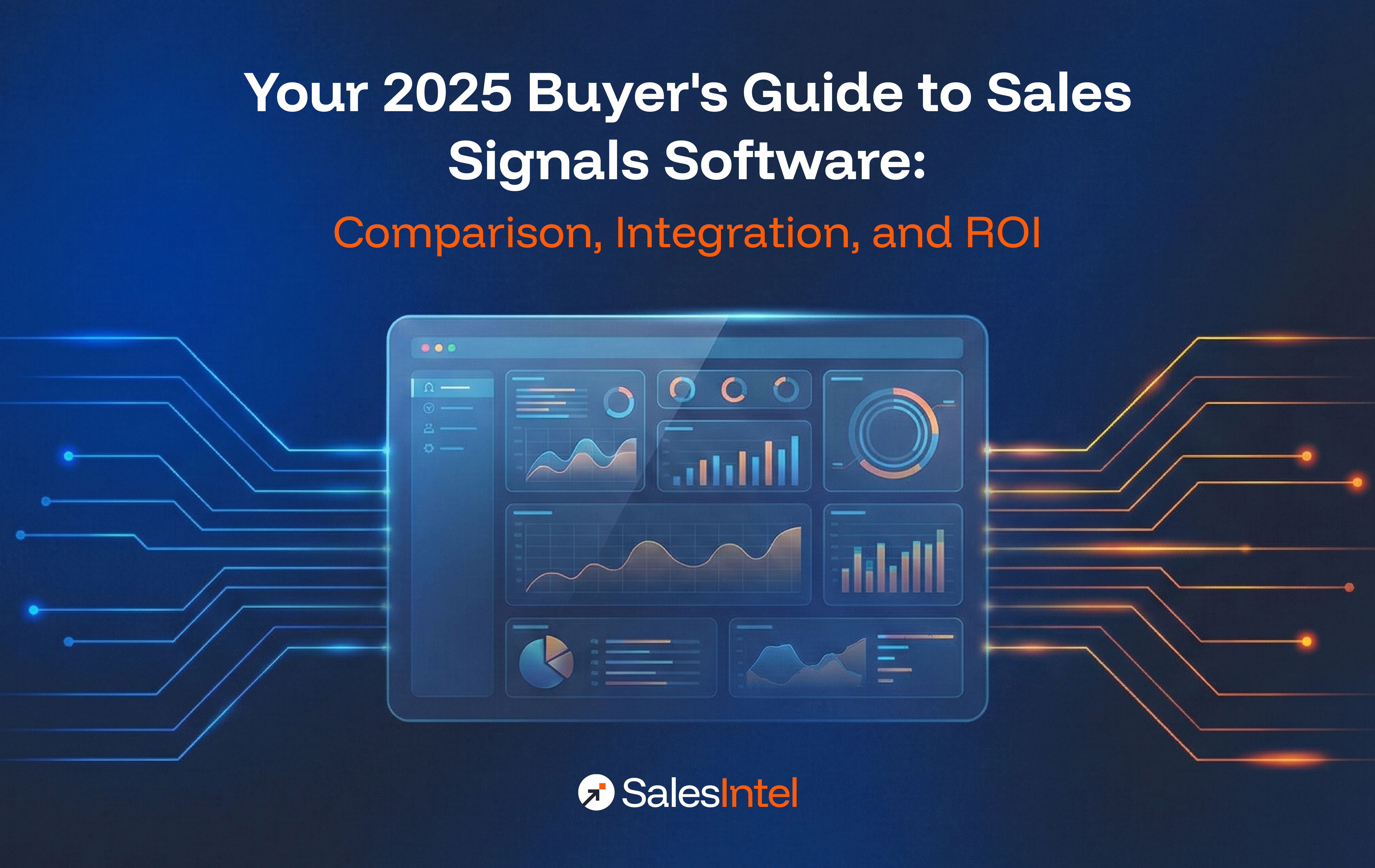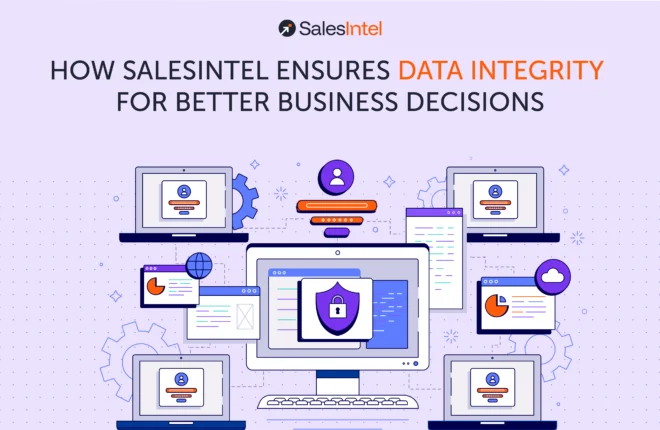It’s fair to say that sales has largely always been a human game.
However, in recent years, AI has made a huge dent in various enterprise sales processes, from lead scoring and qualification to data entry and follow-ups.
For instance, on average, reps spend 20-30% of their week on CRM admin tasks. AI-based automation can give a big chunk of that back. In one survey, 71% of salespeople said they spend too much time on data entry, indicating strong demand for solutions that streamline it.
When Salesforce examined the impact of AI/automation, they found sales pros using these tools saved about 2+ hours per day on manual tasks like data entry and note-taking. That’s equivalent to nearly one extra selling day per week!
In short, automating manual sales tasks with AI not only boosts morale (less drudgery) but directly increases selling time.
Let’s take a closer look at how AI is (already) benefiting sales and some top tools in this space.
Key Benefits of AI in Sales
Here are just a few of the many advantages AI brings to the table.
Increased Efficiency and Automation
There are plenty of routine sales tasks that AI can automate, such as CRM data entry, email outreach, and follow-ups. With these out of the way, sales teams can focus more on the actual selling and relationship-building part of sales.
Automating CRM updates is so powerful: it gives reps that time back and improves data quality. Automation in this area can include things like: automatically logging emails and call records to the CRM, syncing calendar meetings to deals, using mobile apps or AI voice transcription to record notes, and setting up workflows that update deal stages or fields based on triggers. The goal is a CRM that “updates itself” as much as possible so reps can focus on conversations, not clerical work.
For instance, Habitium, a Spanish eCommerce startup, automated its data management and reporting (using Coupler.io to sync inventory and sales data). By eliminating manual spreadsheet work, they reduced manual workloads by 80% and increased sales by 11%, freeing their team to focus on selling rather than data upkeep. This highlights how even back-end sales operations automation can boost revenue lifecycle management.
By eliminating manual spreadsheet work, Habitium reduced manual workloads by 80% and increased sales by 11%, freeing their team to focus on selling rather than data upkeep.
With an AI-powered sales engagement platform, you can create predefined sequence templates (e.g., a 5-touch cadence over 2 weeks) and have the system send emails on a schedule, send reminder tasks to call, and even auto-follow-up if there’s no reply.
For inbound leads or trials, you might send an immediate thank-you email, then a day later a resources email, etc., all without manual effort. This way, AI keeps the conversation going even when reps are busy, and no lead falls through the cracks due to forgotten follow-ups.
Another great example of AI boosting sales productivity is from Vaultra Storage, a Canadian self-storage solution. After automating their follow-up emails with ActiveCampaign, Vaultra saw an 84% jump in email engagement and faster deal closures. This small business could punch above its weight in sales efficiency by ensuring every lead was nurtured promptly without relying on a tiny team to remember every email.
After automating their follow-up emails with ActiveCampaign, Vaultra saw an 84% jump in email engagement and faster deal closures.
Improved Revenue and Profitability
AI can help sales teams bring in more revenue and improve profitability.
Here’s how:
- AI can create profiles of each customer.
AI uses data such as purchase history, browsing behavior, and customer preferences to create a detailed profile of every customer. It analyzes customer data to predict future buying behaviors and preferences.
- AI can optimize prices.
AI can analyze market conditions, demand trends, and customer profiles to adjust prices in real-time. This strategy ensures that the prices are always optimized for maximum sales potential without sacrificing profit margins.
- AI models can determine the price sensitivity.
Ai considers the pricing needs of customer segments. This allows businesses to set prices that are more likely to result in a sale while maintaining profitability.
- AI takes into account seasonal trends.
Along with other contextual factors when setting prices. For example, offering discounts on accessories when a customer buys a main product can increase the likelihood of an additional purchase.
- AI tools can continuously monitor competitors’ pricing.
It then adjusts your pricing strategy accordingly. This ensures that your offerings remain competitive, attractive, and timely in the market.
Once AI understands customers’ preferences and ideal prices, it can recommend upgrades at the right times. It can also create personalized bundles of preferred features with a discount. This approach boosts the perceived value and gently nudges customers toward larger purchases.
Shortened Sales Cycles
Not all leads are created equal. That’s where lead scoring comes in. Automating lead scoring means using software (often your CRM or marketing automation platform) to assign points to leads based on their attributes and behaviors.
For example, downloading a whitepaper might add +10 points, or a C-level title might add +5. Once a lead crosses a score threshold, your system can automatically flag it as “Sales Qualified” and notify your team.
AI-based lead scoring ensures that the hottest prospects bubble to the top without manual triage. AI improves scoring models over time, learning which activities truly predict a sale. By automating this process, you respond faster to high-intent leads and avoid wasting effort on lukewarm ones.
Case in point: Agicap, a fast-growing cash flow management SaaS startup, struggled with messy lead tracking and was missing opportunities. They implemented HubSpot’s automated lead scoring and enrichment to focus on the best leads. The results were dramatic: their monthly qualified leads doubled, and they grew recurring revenue 6× in two years after automating lead management.
The Irony of Machines Making Your Team Sound More Human
Automation shouldn’t equal impersonal.
At the end of the day, sales is all about that personal human touch. If your automated emails sound like spam, prospects will tune out.
But guess what? AI helps with hyper-personalization of all interactions (machines helping sales teams come across as more human talk about irony).
For instance, Salesforce leveraged AI-driven prospecting tools to analyze customer data and send highly personalized outreach, boosting their lead conversion rate by 30% as a result. This shows that with the right tech, even large-scale B2B teams can significantly improve efficiency and outcomes while ensuring a personal touch.
Leading AI Sales Tools in 2025
There really is no shortage of AI-powered sales tools today. You’re spoilt for choice.
That being said, here are three such tools you can check out and bring into your arsenal.
Gong.io: Conversational intelligence for improving sales conversations.
Gong.io is a comprehensive AI-driven revenue intelligence platform designed to enhance sales performance. It offers various features such as Gong Forecast, Gong Engage, Gong Data Engine, and Gong AI, each tailored to streamline and improve different aspects of the sales process. The platform supports 70+ languages and is built to cater to the complex needs of large go-to-market teams.
Gong.io automates sales processes by capturing and analyzing customer interactions across multiple channels, such as emails, calls, and meetings. It uses AI to provide insights on sales calls, pinpointing what strategies lead to successful outcomes.
This enables sales teams to replicate effective tactics, streamline their pipelines, and enhance coaching by identifying areas for improvement. The platform’s automation capabilities help reduce manual data entry and increase efficiency, allowing sales reps to focus more on engaging with customers and closing deals.
Clari: Advanced forecasting and pipeline management.
Clari is a comprehensive revenue platform that integrates various sales processes to enhance revenue operations.
It harnesses AI to enhance forecasting and pipeline management. Clari captures data across customer interactions, ensuring that all information is automatically updated and accessible.
Clari’s analytics offer deep insights into sales trends and behaviors, helping teams optimize their strategies and reduce the sales cycle. The platform’s ability to provide real-time visibility into the sales pipeline and predictive insights helps sales teams prioritize efforts and allocate resources effectively.
Salesloft: Streamlining customer engagement and lead management.
Salesloft.com offers a comprehensive revenue orchestration platform that automates various aspects of the sales process. It primarily aims to boost sales efficiency and effectiveness, providing real-time insights to drive better engagement and faster deal closures.
Its key features include AI-driven buyer signal prioritization, Rhythm AI for real-time task prioritization, and tools for pipeline management and forecasting.
It also includes CRM integration, lead tracking, and detailed analytics, helping sales teams to manage the sales cycle from prospecting to closing efficiently.
Wrapping Up
AI-based automation is there to reinforce, not substitute, the human element of sales.
The best results happen when reps and AI work shoulder-to-shoulder with automation doing the grunt work of data and process, and reps focusing on empathy, creativity, and problem-solving for customers. When you thoughtfully bring AI into your sales mix, you’ll create a sales operation that’s high-performing, scalable, and more enjoyable for your sales team at every step.
While you’re at it, don’t waste time with stale data. Find companies that match your ICP and are ready to buy. Build a robust pipeline and close more deals with SalesIntel’s army of 2000+ researchers who verify prospect contacts every 90 days, delivering up to 95% accuracy.
Author Bio: The above post was written by Lucy Manole, Creative Content Writer and Strategist at Marketing Digest.




